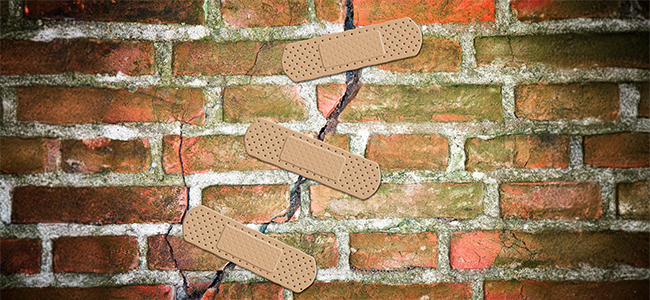“Look before you leap.” (Wise old proverb)
Imagine sealing the deal on your dream property, only to wake up at 3 a.m. beset by sudden doubts. Thoughts like “Can we really afford it?” or “How on earth could we have fallen in love with that old dump?” haunt you. You may have a strong urge to back out – but tread very carefully here. Trying to cancel the sale without sound legal grounds will be a big and costly mistake.
A recent High Court case provides the perfect example.
The R135m house and the “defects” that weren’t
Our buyer put in a R135m offer for a luxury three-storey house in Sandhurst. The cancellation clause in his offer document read (emphasis added): “The Purchaser at his own expense will conduct an inspection of the home within (14) fourteen days of acceptance of the offer. Should there be structural defects or defects that are unacceptable to the Purchaser then the Purchaser can at his discretion elect to cancel this agreement.”
The seller accepted the offer with that cancellation clause – deal done. But then, eight days later, the buyer tried to escape the sale with this email from his attorney: “Unfortunately after conducting due diligence, the purchaser hereby elects to cancel the agreement… Good luck with the sale.” The buyer’s remorse in this case turned out to be monetary – he had, he said, overpaid for the property. He then put in a new offer for R100m.
That was a loss the seller wasn’t going to accept, so daggers were drawn, and the fight was on.
The seller hotly denied that the buyer had any right to cancel the sale agreement, and off they went to the High Court. The buyer said that he had “unfettered discretion” to decide whether or not there were defects, and he refused to give the seller any details of them. Only in his court papers did he provide more information, claiming to have noticed cracks on the walls during an inspection. The rest of his “concerns” related to his personal preferences for the house – wanting new paving, widening the driveway, remodelling the kitchen, installing an elevator and the like.
Subjective belief in a defect isn’t enough
The Court had no hesitation in holding that the buyer had not been entitled to withdraw from the sale “based on any minor ‘imperfection’ in the property, because it does not fulfil his personal needs – at his sole discretion and without proof.”
He had failed, as required by law, to exercise his discretion reasonably and to prove the existence of a defect objectively (i.e., based on facts, not personal belief) rather than subjectively (i.e., based on the buyer’s personal opinions or interpretations). His subjective interpretation was irrelevant.
The bottom line: the seller had rightly rejected the buyer’s cancellation, and the buyer remains bound to the sale. To rub salt into his wounds he must now also pay costs on the attorney and client scale – that’s going to be expensive!
What then is a “defect”?
Per the Court, the ordinary meaning of a defect is (emphasis supplied): “an ‘abnormal quality or attribute’ of the property sold that ‘destroys or substantially impairs’ its ‘utility or effectiveness’ for the purpose for which it is generally used or unfit for the special purpose for which it was intended to be used by the purchaser.”
Personal preferences like elevators and revamped kitchens don’t count, and a wall crack justifying a R35m price reduction can’t be superficial!
Look before you leap!
Some final thoughts for property buyers:
- Don’t rush (or be rushed) into buying anything. Take your time, and make sure this really is the property for you and that you can afford it.
- Check the house thoroughly for any potential problems and consider commissioning an independent home inspection to look for any defects that might not be immediately obvious (damp for example). If you are worried about anything in particular, bring in the experts or insist on expert reports from the seller.
- Last (but certainly not least) don’t sign anything without asking us to review all the paperwork for you first!
Disclaimer: The information provided herein should not be used or relied on as professional advice. No liability can be accepted for any errors or omissions nor for any loss or damage arising from reliance upon any information herein. Always contact us for specific and detailed advice.
© LawDotNews






